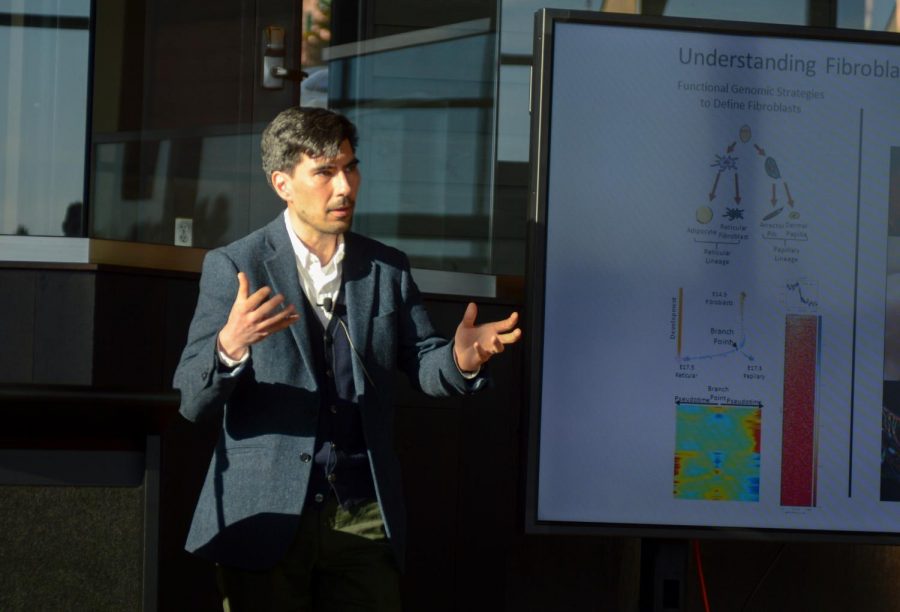Prof studies scar hair growth
Associate professor hopes to use findings to help patients recover from scars
ADAM JACKSON | THE DAILY EVERGREEN
Ryan Driskell, an assistant professor in the School of Molecular Biosciences, gives a presentation on the Functional Genomics Initiative during the Multidisciplinary Research FlashTalks on Tuesday.
April 30, 2018
An assistant professor and researcher in the School of Molecular Biosciences is working on manipulating fibroblasts in cells to stimulate hair growth in scarred areas.
Ryan Driskell’s research is not limited to scars. It has other uses, and could even be a solution for scarring diseases such as scleroderma. Just as the research has more than one avenue of application, the techniques used to generate the research are a blend of strategies as well.
“We try to use modern techniques that are allowing us to interrogate cells in conjunction with traditional techniques that were started back in the ’40s and ’50s,” Driskell said.
He likened stem cells to children, unable to do the complex jobs of scar tissue repair when they are taken out of their proper environment. Driskell said stem cells are able to make hairs but have to be directed to do so. This is what makes his research with the structures surrounding stem cells so important — without them, the stem cells don’t know what to do.
“The best way to get skin regeneration to happen is to put in the right amount of ‘adult’ cells,” Driskell said. “What we’re finding is that … the reason you scar is because you lack the right heterogeneity, or diversity, in cells.”
He said his hair follicles and scar research is funded through the Functional Genomics Initiative. He hopes his research will attract more money from foundations such as the National Institute of Health. He also said he hopes to have his research published by the end of this year.
Driskell has spent 15 years working in this area, and he is in his ninth month of research at WSU. He was the first to present Tuesday at a Faculty Flash Talk, where he described his findings to his colleagues in three minutes.
He said he has an innate curiosity when it comes to his research, and that is what drives him to continue.
“It makes me want to come in every day … to figure out what’s the right question to ask in order to discover something new,” Driskell said.






















